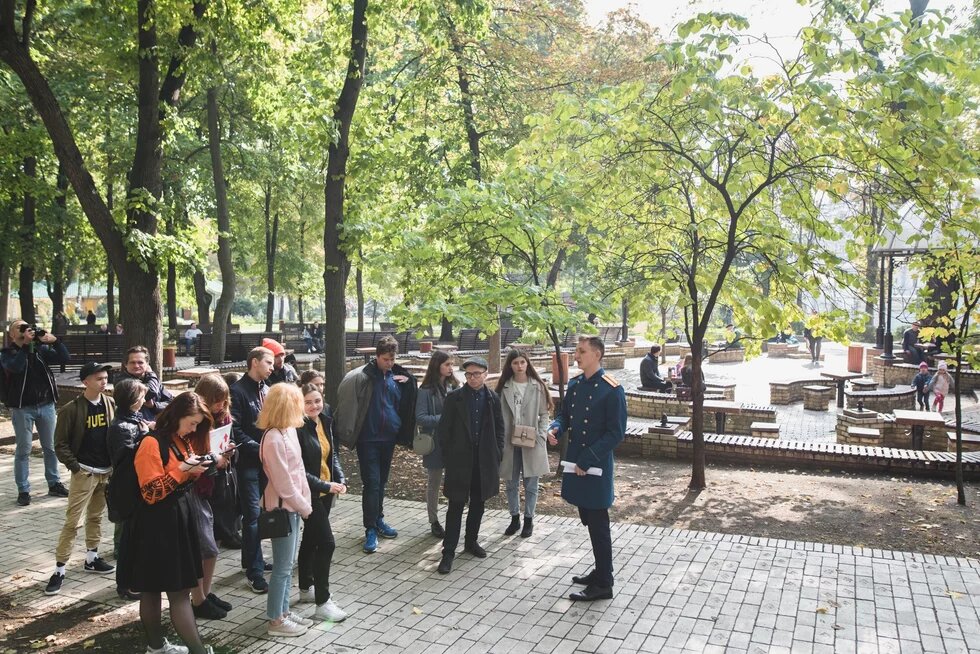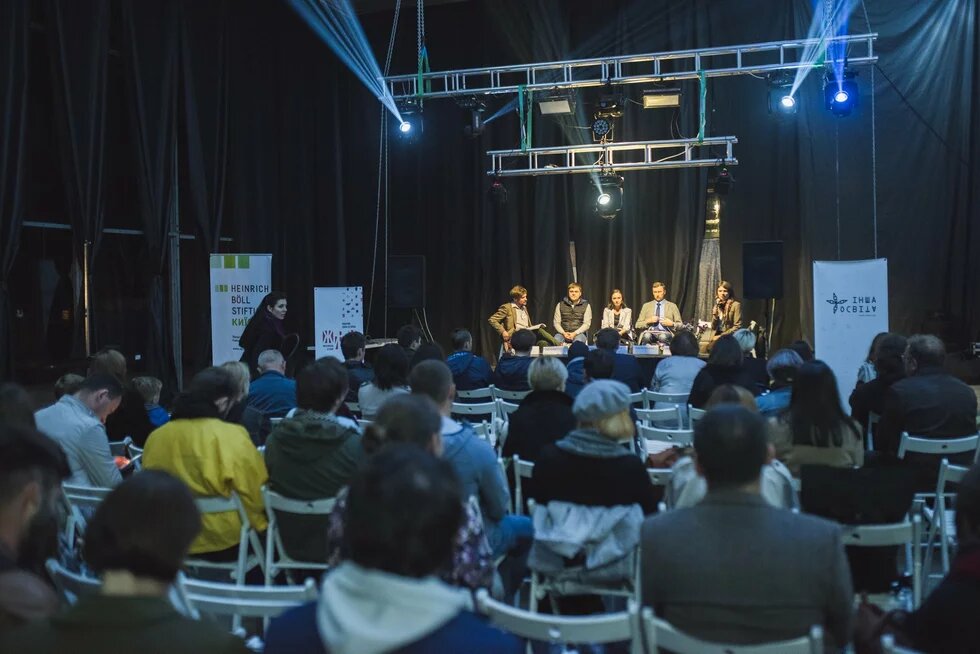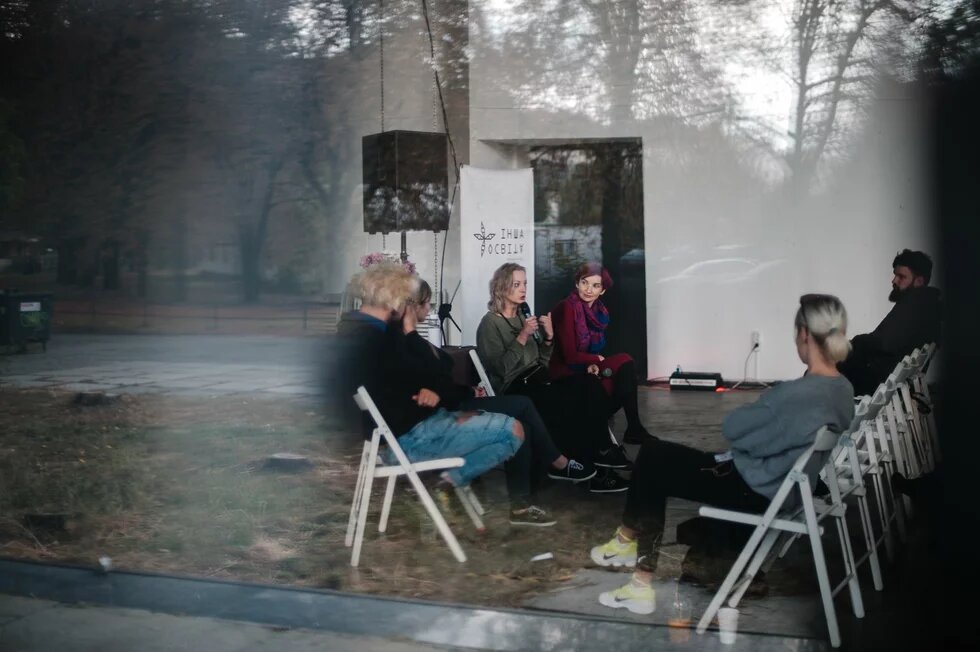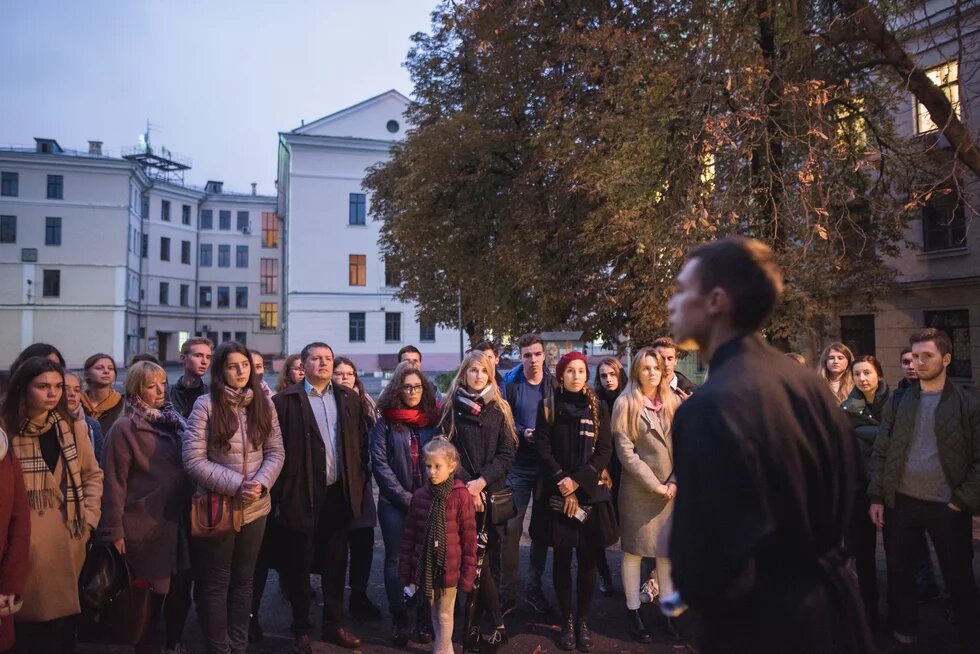
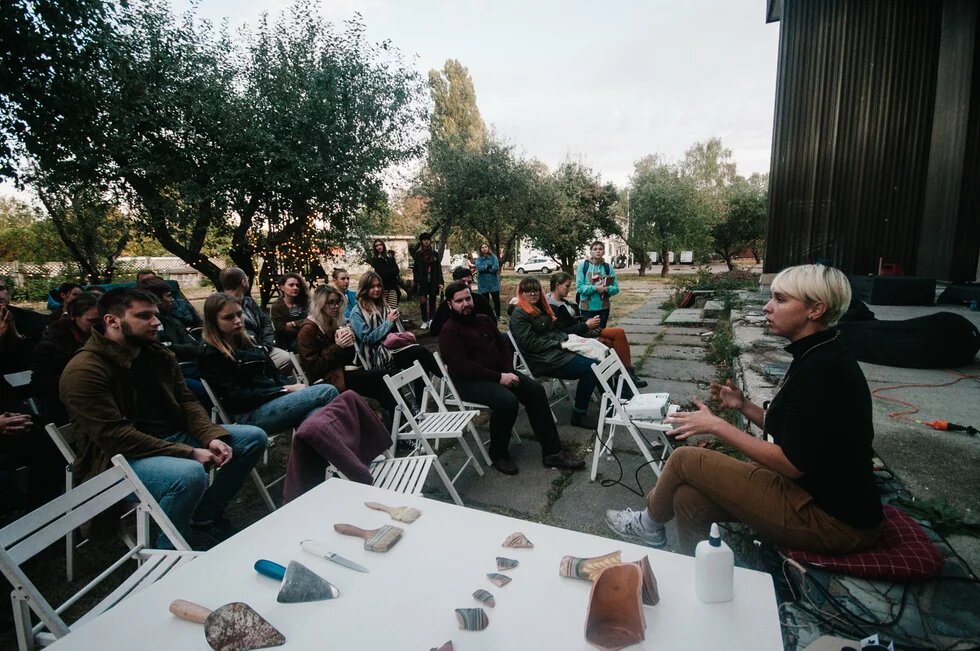
On September 28-29, the second Festival of Living Stories was held, organized by NGO Insha Osvita. The event got together over 700 participants interested in, and working with, cultural heritage, studying history, and ways in which people remember the past. The festival became a common space for various formats of responsible reinterpretation of history, as well as representation of the existing cultural and educational practices. The participants were looking for inclusive and multi-faceted visions of the past together and created a favorable space for its interpreting and understanding.
The festival sought to answer the following questions:
- Is there a viable alternative to memory narratives that are common in Ukraine?
- How can the Ukrainian society and authorities create inclusive and participatory memory spaces?
- What can the public history policy of today’s Ukraine look like?
- What is the role of culture and art in the process of memory narratives creation?
The main venue was the 13th pavilion of the VDNH Exhibition Center, but many events that constituted part of the festival took place in various locations in Kyiv: museums, archives, libraries, cinemas, research tours and scavenger hunts. Overall, the festival encompassed 82 public events in 5 focus areas:
- History for children;
- Memory space: modern Ukrainian documentation;
- Practical and educational workshops;
- Modern documentary theatre;
- Living stories in media and literature.
Within the project supported by Heinrich Boell Foundation, Kyiv Office — Ukraine, two networking events took place as well, fostering exchange of experience and contacts among the professional community of humanitarian scholars. One of the initiatives during the two days of the project was the Live Laboratory of Public Historic Initiatives, with the participation of 52 projects and studies working with public history methods of interpreting the relevant historic context.
Another networking event was Pecha-Kucha, a networking format for representatives of museums, archives and libraries from across Ukraine, which made it possible to organize 22 presentations. The participants shared the experiences of their institutions, successful practices, the challenges they face in their work, project ideas in progress; they looked for answers to questions related to their professional activity.
As part of the Festival, the Foundation also supported discussions “Memory Policy in Ukraine: Stop or Keep Going?” and “Does Cultural Management Exist in Ukraine?
You can view recordings of lectures held as part of the Festival of Living Stories here.
Photos from the Festival are available here and here.
Festival of Living Stories was organized by NGO Insha Osvita in partnership with MitOst e.V. and NGO Mnemonics Center for Studies in Memory Policy and Public History with the financial support of Heinrich Boell Foundation, Kyiv Office — Ukraine.
